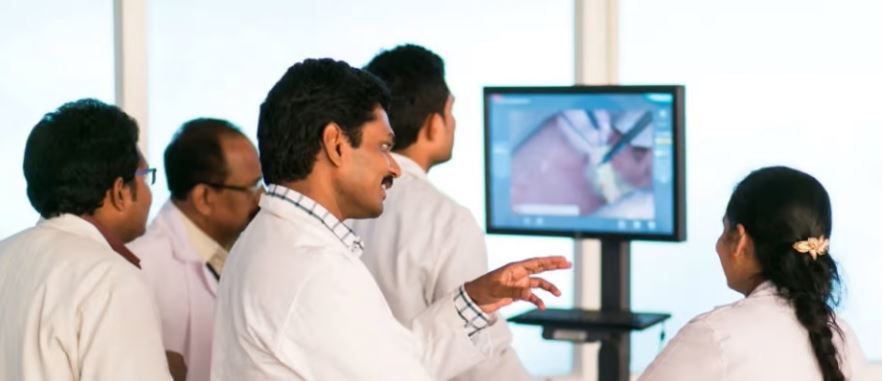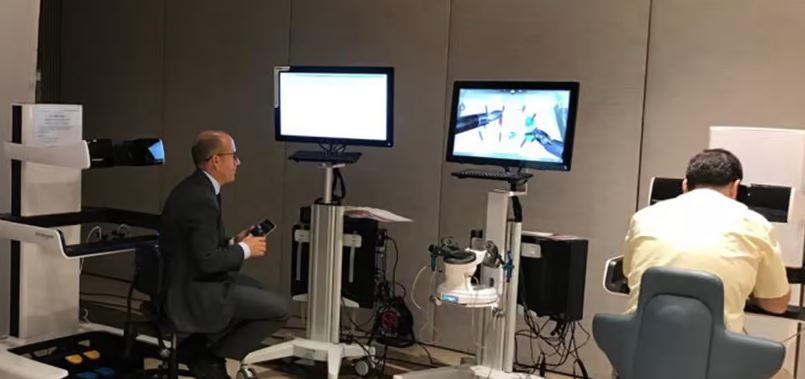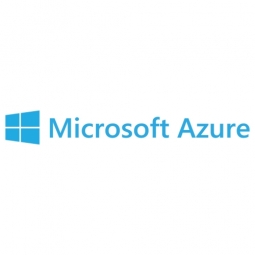Customer Company Size
Large Corporate
Region
- America
Country
- United States
Product
- Microsoft Teams
- Outlook
Tech Stack
- Microsoft Teams
Implementation Scale
- Enterprise-wide Deployment
Impact Metrics
- Digital Expertise
- Customer Satisfaction
Technology Category
- Platform as a Service (PaaS) - Connectivity Platforms
Applicable Industries
- Education
Applicable Functions
- Business Operation
Use Cases
- Remote Collaboration
- Remote Control
- Remote Patient Monitoring
Services
- Cloud Planning, Design & Implementation Services
- System Integration
About The Customer
The University of South Florida (USF) is a large educational institution with multiple campuses located in Tampa, Sarasota-Manatee, and St. Petersburg. It is a significant player in higher education in the United States, with a student body of approximately 56,000 students. USF is known for its diverse range of programs and its commitment to innovation in education. The university also includes USF Health, which is dedicated to training the next generation of healthcare professionals. As a large corporate entity, USF employs over 10,000 staff members, making it a substantial organization in terms of both size and influence. The university is committed to providing high-quality education and has been proactive in adopting new technologies to enhance learning experiences.
The Challenge
When the COVID-19 pandemic hit, educational institutions worldwide faced unprecedented challenges. The University of South Florida (USF) was no exception, as it had to quickly adapt to the new reality of remote learning and collaboration. The university, with its multiple campuses and a large student body, needed a solution that could facilitate seamless communication and learning without compromising the quality of education. USF had already been in the process of transitioning to a unified technology environment, but the pandemic accelerated this need. The challenge was not only to continue educational activities but also to ensure the safety and health of students and faculty, particularly in the medical field where hands-on training is crucial.
The Solution
To address the challenges posed by the pandemic, USF turned to Microsoft Teams as a comprehensive solution for remote learning and collaboration. The platform allowed the university to create a virtual classroom environment that was both flexible and robust, meeting the needs of its diverse student body. Microsoft Teams enabled asynchronous learning through pre-recorded videos and synchronous sessions where faculty could engage with students in real-time discussions. This approach was particularly beneficial for USF Health, where medical education required adaptation to a virtual format without losing the essence of hands-on training. Additionally, USF implemented a telehealth solution using Microsoft Teams, allowing medical faculty and students to continue patient interactions remotely. This rapid deployment was achieved in just a few days, demonstrating the university's agility and commitment to maintaining educational standards.
Operational Impact
Quantitative Benefit

Case Study missing?
Start adding your own!
Register with your work email and create a new case study profile for your business.
Related Case Studies.

Case Study
Revolutionizing Medical Training in India: GSL Smart Lab and the LAP Mentor
The GSL SMART Lab, a collective effort of the GSL College of Medicine and the GSL College of Nursing and Health Science, was facing a challenge in providing superior training to healthcare professionals. As clinical medicine was becoming more focused on patient safety and quality of care, the need for medical simulation to bridge the educational gap between the classroom and the clinical environment was becoming increasingly apparent. Dr. Sandeep Ganni, the director of the GSL SMART Lab, envisioned a world-class surgical and medical training center where physicians and healthcare professionals could learn skills through simulation training. He was looking for different simulators for different specialties to provide both basic and advanced simulation training. For laparoscopic surgery, he was interested in a high fidelity simulator that could provide basic surgical and suturing skills training for international accreditation as well as specific hands-on training in complex laparoscopic procedures for practicing physicians in India.

Case Study
IoT platform Enables Safety Solutions for U.S. School Districts
Designed to alert drivers when schoolchildren are present, especially in low-visibility conditions, school-zone flasher signals are typically updated manually at each school. The switching is based on the school calendar and manually changed when an unexpected early dismissal occurs, as in the case of a weather-event altering the normal schedule. The process to reprogram the flashers requires a significant effort by school district personnel to implement due to the large number of warning flashers installed across an entire school district.

Case Study
Implementing Robotic Surgery Training Simulator for Enhanced Surgical Proficiency
Fundacio Puigvert, a leading European medical center specializing in Urology, Nephrology, and Andrology, faced a significant challenge in training its surgical residents. The institution recognized the need for a more standardized and comprehensive training curriculum, particularly in the area of robotic surgery. The challenge was underscored by two independent studies showing that less than 5% of residents in Italian and German residency programs could perform major or complex procedures by the end of their residency. The institution sought to establish a virtual reality simulation lab that would include endourological, laparoscopic, and robotic platforms. However, they needed a simulator that could replicate both the hardware and software of the robotic Da Vinci console used in the operating room, without being connected to the actual physical console. They also required a system that could provide both basic and advanced simulation training, and a metrics system to assess the proficiency of the trainees before they performed surgical procedures in the operating theater.

Case Study
Edinburgh Napier University streamlines long-distance learning with Cisco WebEX
• Geographically dispersed campus made in-person meetings costly and inconvenient.• Distance-learning programs in Malaysia, India, and China required dependable, user-friendly online tools to maximize interaction in collaborative workspaces.• Virtual learning environment required a separate sign-in process, resulting in a significant administrative burden for IT staff and limited adoption of collaboration technology.

Case Study
8x increased productivity with VKS
Before VKS, a teacher would spend a lot of time showing a group of 22 students how to build a set of stairs within a semester of 120 hours. Along with not leaving the teacher much time to provide one-on-one support for each student to properly learn carpentry, it also left a considerable amount of room for error. Key information would be misinterpreted or lost as the class was taught in the typical show-and-tell way.

Case Study
Scalable IoT Empowering GreenFlex's Sustainable Growth
GreenFlex, a company that supports sustainable development, decarbonization, and energy efficiency, faced several challenges in its quest to expand its business. The company needed to deploy a robust and sustainable IoT technology to support its growth. It was crucial for them to monitor and control devices at customer sites in a safe and reliable manner. They also needed to integrate devices across a range of communication protocols and gather and act on data to meet efficiency targets. GreenFlex had previously built IoT capabilities into its digital platform, GreenFlexIQ, to monitor and manage customer sites remotely. However, they soon realized that they needed a new platform to support their ambitions. They needed a platform that could scale to connect more devices for production management and make it easier for the operations team to manage devices in the field.







